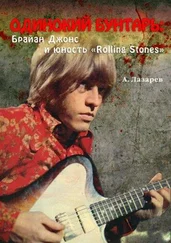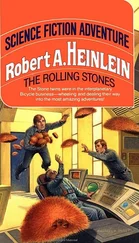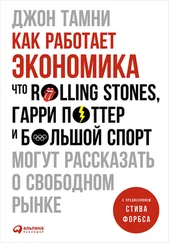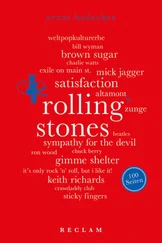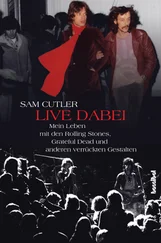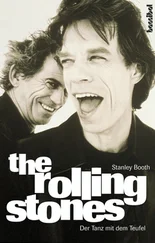O'Henry - Rolling Stones
Здесь есть возможность читать онлайн «O'Henry - Rolling Stones» весь текст электронной книги совершенно бесплатно (целиком полную версию без сокращений). В некоторых случаях можно слушать аудио, скачать через торрент в формате fb2 и присутствует краткое содержание. Жанр: Классическая проза, Юмористическая проза, на английском языке. Описание произведения, (предисловие) а так же отзывы посетителей доступны на портале библиотеки ЛибКат.
- Название:Rolling Stones
- Автор:
- Жанр:
- Год:неизвестен
- ISBN:нет данных
- Рейтинг книги:5 / 5. Голосов: 1
-
Избранное:Добавить в избранное
- Отзывы:
-
Ваша оценка:
- 100
- 1
- 2
- 3
- 4
- 5
Rolling Stones: краткое содержание, описание и аннотация
Предлагаем к чтению аннотацию, описание, краткое содержание или предисловие (зависит от того, что написал сам автор книги «Rolling Stones»). Если вы не нашли необходимую информацию о книге — напишите в комментариях, мы постараемся отыскать её.
Rolling Stones — читать онлайн бесплатно полную книгу (весь текст) целиком
Ниже представлен текст книги, разбитый по страницам. Система сохранения места последней прочитанной страницы, позволяет с удобством читать онлайн бесплатно книгу «Rolling Stones», без необходимости каждый раз заново искать на чём Вы остановились. Поставьте закладку, и сможете в любой момент перейти на страницу, на которой закончили чтение.
Интервал:
Закладка:
"'Buenas dias, senor. Yo tengo--yo tengo--'
"'Oh, sit down, Mr. Bowers,' says he. 'I spent eight years in your country in colleges and law schools. Let me mix you a highball. Lemon peel, or not?'
"Thus we got along. In about half an hour I was beginning to tell him about the scandal in our family when Aunt Elvira ran away with a Cumberland Presbyterian preacher. Then he says to me:
"'I sent for you, Mr. Bowers, to let you know that you can have your friend Mr. O'Connor now. Of course we had to make a show of punishing him on account of his attack on General Tumbalo. It is arranged that he shall be released to-morrow night. You and he will be conveyed on board the fruit steamer Voyager, bound for New York, which lies in the harbor. Your passage will be arranged for.'
"'One moment, judge,' says I; 'that revolution--'
"The judge lays back in his chair and howls. "'Why,' says he presently, 'that was all a little joke fixed up by the boys around the court-room, and one or two of our cut-ups, and a few clerks in the stores. The town is bursting its sides with laughing. The boys made themselves up to be conspirators, and they--what you call it?--stick Senor O'Connor for his money. It is very funny.'
"'It was,' says I. 'I saw the joke all along. I'll take another highball, if your Honor don't mind.'
"The next evening just at dark a couple of soldiers brought O'Connor down to the beach, where I was waiting under a cocoanut-tree.
"'Hist!' says I in his ear: 'Dona Isabel has arranged our escape. Not a word!'
"They rowed us in a boat out to a little steamer that smelled of table d'hote salad oil and bone phosphate.
"The great, mellow, tropical moon was rising as we steamed away. O'Connor leaned on the taffrail or rear balcony of the ship and gazed silently at Guaya--at Buncoville-on-the-Beach.
"He had the red rose in his hand.
"'She will wait,' I heard him say. 'Eyes like hers never deceive. But I shall see her again. Traitors cannot keep an O'Connor down forever.'
"'You talk like a sequel,' says I. 'But in Volume II please omit the light-haired friend who totes the grub to the hero in his dungeon cell.'
"And thus reminiscing, we came back to New York."
There was a little silence broken only by the familiar roar of the streets after Kansas Bill Bowers ceased talking.
"Did O'Connor ever go back?" I asked.
"He attained his heart's desire," said Bill. "Can you walk two blocks? I'll show you."
He led me eastward and down a flight of stairs that was covered by a curious-shaped glowing, pagoda-like structure. Signs and figures on the tiled walls and supporting columns attested that we were in the Grand Central station of the subway. Hundreds of people were on the midway platform.
An uptown express dashed up and halted. It was crowded. There was a rush for it by a still larger crowd.
Towering above every one there a magnificent, broad-shouldered, athletic man leaped into the centre of the struggle. Men and women he seized in either hand and hurled them like manikins toward the open gates of the train.
Now and then some passenger with a shred of soul and self-respect left to him turned to offer remonstrance; but the blue uniform on the towering figure, the fierce and conquering glare of his eye and the ready impact of his ham-like hands glued together the lips that would have spoken complaint.
When the train was full, then he exhibited to all who might observe and admire his irresistible genius as a ruler of men. With his knees, with his elbows, with his shoulders, with his resistless feet he shoved, crushed, slammed, heaved, kicked, flung, pounded the overplus of passengers aboard. Then with the sounds of its wheels drowned by the moans, shrieks, prayers, and curses of its unfortunate crew, the express dashed away.
"That's him. Ain't he a wonder?" said Kansas Bill admiringly. "That tropical country wasn't the place for him. I wish the distinguished traveller, writer, war correspondent, and playright, Richmond Hobson Davis, could see him now. O'Connor ought to be dramatized."
THE ATAVISM OF JOHN TOM LITTLE BEAR
[O. Henry thought this the best of the Jeff Peters stories, all the rest of which are included in "The Gentle Grafter," except "Cupid a la Carte" in the "Heart of the West." "The Atavism of John Tom Little Bear" appeared in EVERYBODY'S MAGAZINE for July, 1903.]
I saw a light in Jeff Peters's room over the Red Front Drug Store. I hastened toward it, for I had not known that Jeff was in town. He is a man of the Hadji breed, of a hundred occupations, with a story to tell (when he will) of each one.
I found Jeff repacking his grip for a run down to Florida to look at an orange grove for which he had traded, a month before, his mining claim on the Yukon. He kicked me a chair, with the same old humorous, profound smile on his seasoned countenance. It had been eight months since we had met, but his greeting was such as men pass from day to day. Time is Jeff's servant, and the continent is a big lot across which he cuts to his many roads.
For a while we skirmished along the edges of unprofitable talk which culminated in that unquiet problem of the Philippines.
"All them tropical races," said Jeff, "could be run out better with their own jockeys up. The tropical man knows what he wants. All he wants is a season ticket to the cock-fights and a pair of Western Union climbers to go up the bread-fruit tree. The Anglo-Saxon man wants him to learn to conjugate and wear suspenders. He'll be happiest in his own way."
I was shocked.
"Education, man," I said, "is the watchword. In time they will rise to our standard of civilization. Look at what education has done for the Indian."
"O-ho!" sang Jeff, lighting his pipe (which was a good sign). "Yes, the Indian! I'm looking. I hasten to contemplate the redman as a standard bearer of progress. He's the same as the other brown boys. You can't make an Anglo-Saxon of him. Did I ever tell you about the time my friend John Tom Little Bear bit off the right ear of the arts of culture and education and spun the teetotum back round to where it was when Columbus was a little boy? I did not?
"John Tom Little Bear was an educated Cherokee Indian and an old friend of mine when I was in the Territories. He was a graduate of one of them Eastern football colleges that have been so successful in teaching the Indian to use the gridiron instead of burning his victims at the stake. As an Anglo-Saxon, John Tom was copper-colored in spots. As an Indian, he was one of the whitest men I ever knew. As a Cherokee, he was a gentleman on the first ballot. As a ward of the nation, he was mighty hard to carry at the primaries.
"John Tom and me got together and began to make medicine--how to get up some lawful, genteel swindle which we might work in a quiet way so as not to excite the stupidity of the police or the cupidity of the larger corporations. We had close upon $500 between us, and we pined to make it grow, as all respectable capitalists do.
"So we figured out a proposition which seems to be as honorable as a gold mine prospectus and as profitable as a church raffle. And inside of thirty days you find us swarming into Kansas with a pair of fluent horses and a red camping wagon on the European plan. John Tom is Chief Wish-Heap-Dough, the famous Indian medicine man and Samaritan Sachem of the Seven Tribes. Mr. Peters is business manager and half owner. We needed a third man, so we looked around and found J. Conyngham Binkly leaning against the want column of a newspaper. This Binkly has a disease for Shakespearian roles, and an hallucination about a 200 nights' run on the New York stage. But he confesses that he never could earn the butter to spread on his William S. roles, so he is willing to drop to the ordinary baker's kind, and be satisfied with a 200-mile run behind the medicine ponies. Besides Richard III, he could do twenty-seven coon songs and banjo specialties, and was willing to cook, and curry the horses. We carried a fine line of excuses for taking money. One was a magic soap for removing grease spots and quarters from clothes. One was a Sum-wah-tah, the great Indian Remedy made from a prairie herb revealed by the Great Spirit in a dream to his favorite medicine men, the great chiefs McGarrity and Siberstein, bottlers, Chicago. And the other was a frivolous system of pick-pocketing the Kansasters that had the department stores reduced to a decimal fraction. Look ye! A pair of silk garters, a dream book, one dozen clothespins, a gold tooth, and `When Knighthood Was in Flower' all wrapped up in a genuine Japanese silkarina handkerchief and handed to the handsome lady by Mr. Peters for the trivial sum of fifty cents, while Professor Binkly entertains us in a three-minute round with the banjo.
Читать дальшеИнтервал:
Закладка:
Похожие книги на «Rolling Stones»
Представляем Вашему вниманию похожие книги на «Rolling Stones» списком для выбора. Мы отобрали схожую по названию и смыслу литературу в надежде предоставить читателям больше вариантов отыскать новые, интересные, ещё непрочитанные произведения.
Обсуждение, отзывы о книге «Rolling Stones» и просто собственные мнения читателей. Оставьте ваши комментарии, напишите, что Вы думаете о произведении, его смысле или главных героях. Укажите что конкретно понравилось, а что нет, и почему Вы так считаете.


